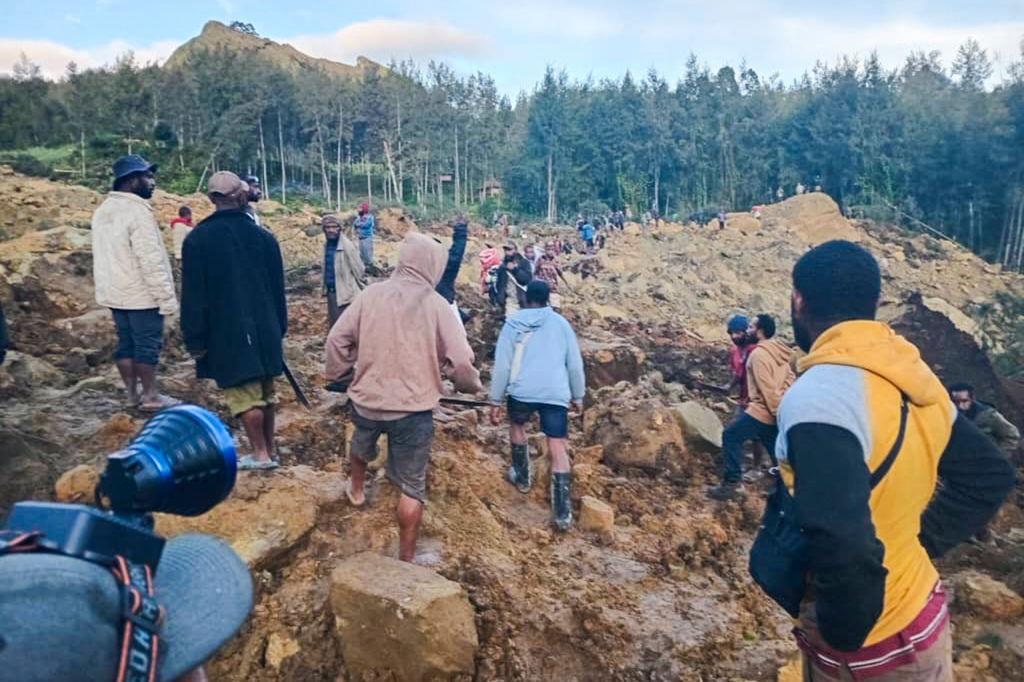A massive landslide is believed to have killed more than a hundred people and devastated six villages in a remote part of Papua New Guinea.
As Many as 500 Feared Dead in Papua New Guinea Landslide
Six villages have been devastated by a massive slip in a remote area of Papua New Guinea. Aid agencies and first responders are on their way to assist.

People gather at the site of a landslide in Maip Mulitaka in Papua New Guinea's Enga Province on May 24, 2024. Local officials and aid groups said a massive landslide struck a village in Papua New Guinea's highlands on May 24, with many feared dead. STR/AFP via Getty Images
|Updated:




